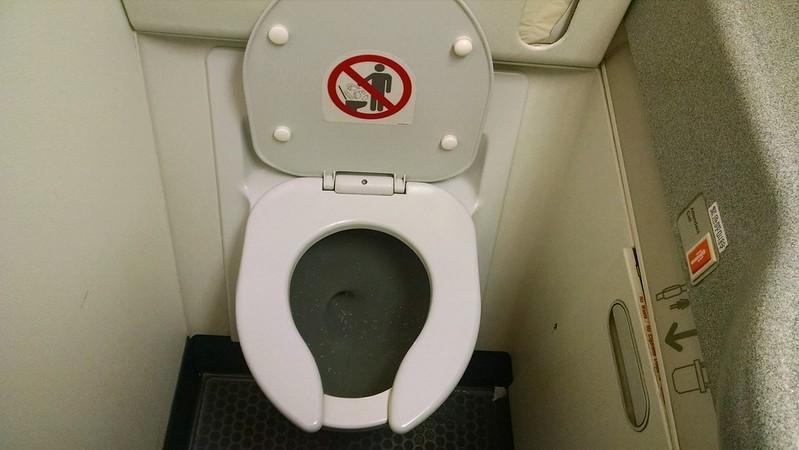SARS-CoV-2 genetic material was discovered in the wastewater of nearly all planes arriving at three international airports in the United Kingdom, despite COVID-19 travel restrictions in place during that time, reveals a study published yesterday in PLOS Global Public Health.
A Bangor University–led team tested samples from sewers and sewage treatment plants close to 150 arrival terminals at the Heathrow, Bristol, and Edinburgh airports and from vacuum trucks collecting wastewater from 32 arriving planes for 1 to 3 weeks in March 2022. The study period coincided with requirements to wear a mask and show a negative COVID-19 test before departure, which were lifted in England on Mar 18.
"It is well established that air travel plays a key role in the global spread of many enteric and respiratory diseases, including COVID-19," the researchers wrote.
They noted that 43% of symptomatic patients shed the virus in their feces, and the virus has also been detected in the feces of infected people with mild or no symptoms.
"Due to the limitation of current clinical surveillance approaches, complementary methods need to be developed to allow estimation of the frequency of SARS-CoV-2 entry across international borders," the authors added. "Wastewater-based epidemiology (WBE) represents one such approach, allowing the unbiased sampling of SARS-CoV-2 carriage by passenger cohorts entering via airports."
High COVID prevalence among passengers, staff
Because the raw sewage samples were cloudier than typical city wastewater, the researchers used beef extract and polyethylene glycol to concentrate viral RNA (not live virus) before testing with polymerase chain reaction (PCR) and a viral fecal indicator assay.
All samples from the Heathrow and Bristol airports and 85% from the Edinburgh terminals tested positive for SARS-CoV-2 genetic material, as did 93% of the samples from airplanes. There was no difference in viral prevalence before and after the lifting of COVID-related travel restrictions.
"This suggests a high COVID-19 prevalence among passengers and/or airport staff members," the authors wrote. "Our results suggest that WBE is a useful tool for monitoring the global transfer rate of human pathogens and other disease-causing agents across international borders and should form part of wider international efforts to monitor and contain the spread of future disease outbreaks."
Possibly 8% to 14% of travelers infected
In a Bangor University news release, lead author Kata Farkas, PhD, said that wastewater sampling could be used to detect viruses other than COVID-19.
This suggests a high COVID-19 prevalence among passengers and/or airport staff members.
"It wouldn’t be feasible to test every flight arriving, but taking wastewater from arrivals at a single airport terminal used for long-haul arrivals may provide an estimate of diseases entering the country," she said. "At the moment we have no idea how many people come into the country carrying different diseases, partly because no one wants to be tested on the spot."
Senior author Davey Jones, PhD, of Bangor University, said that airport SARS-CoV-2 surveillance might have missed cases "because people developed symptoms after testing negative; or were evading the system, or for some other reason. But it showed that there was essentially a failure of border control in terms of Covid surveillance."
The findings square with those of a study the research team published last October in Science of the Total Environment. In that study, in a poll of 2,103 adults, 23% said that they had taken a flight back to the United Kingdom while ill, 13% said they would likely defecate on a short flight, and 36% said they would do so on a long flight.
The team estimated that, combined with COVID-19 viral shedding rates, wastewater sampling at airports could detect 8% to 14% of people carrying SARS-CoV-2 into the country.




















